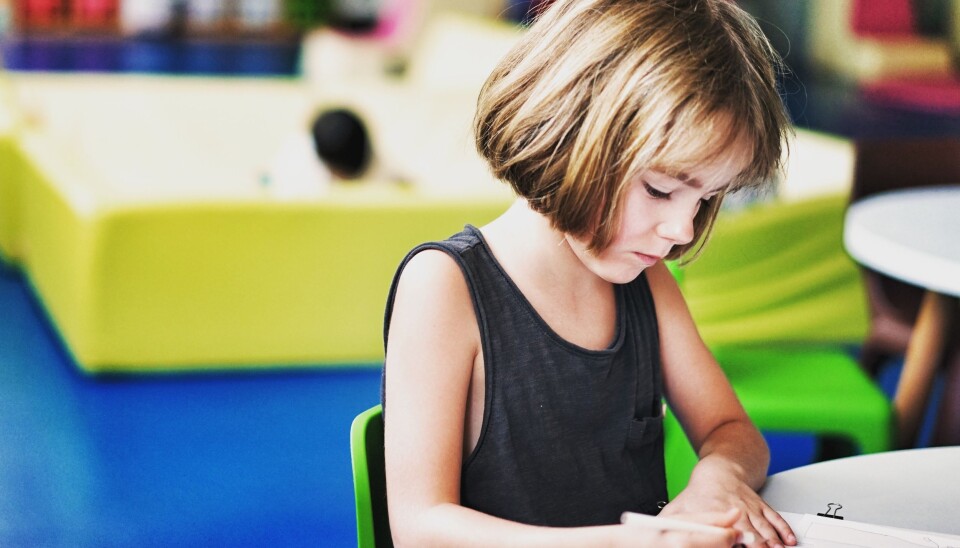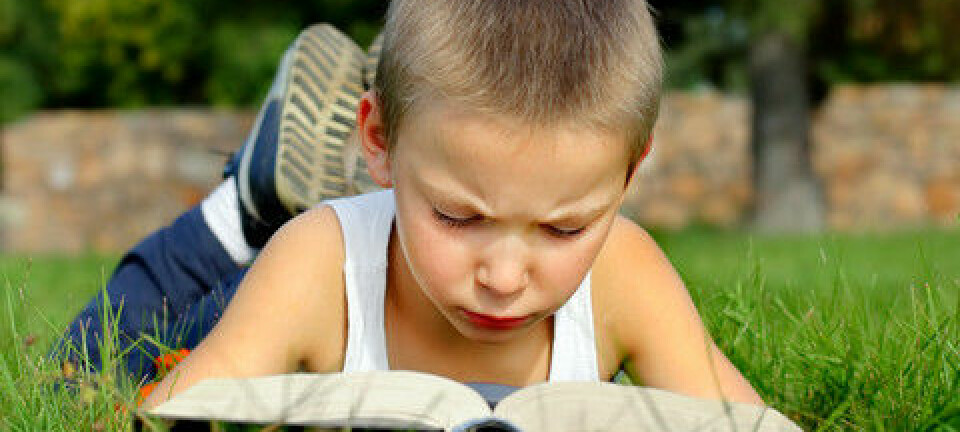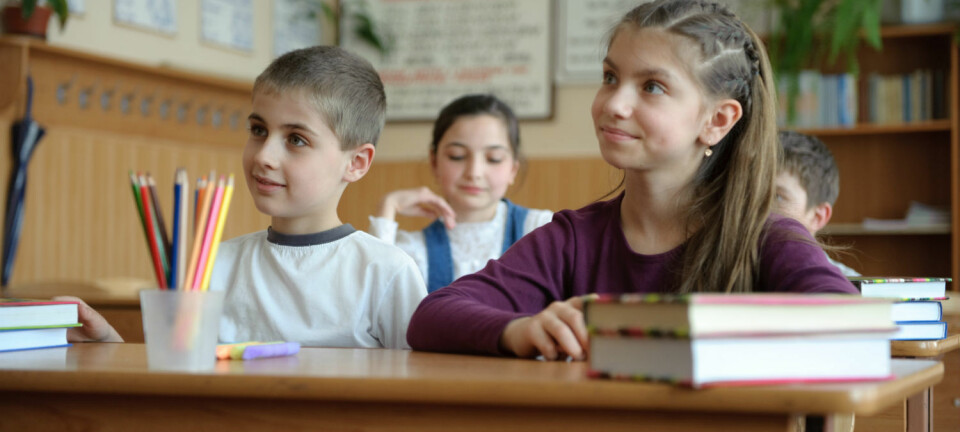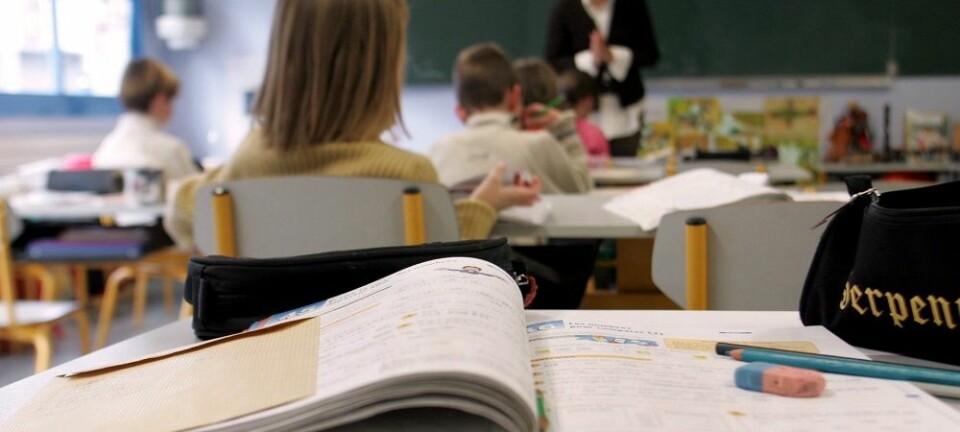
For high-ability students it can be lonely at the top
Gifted children feel separate them from their peers. At worst, they develop social problems and drop out of school, and they rarely receive help.
Special educator Jørgen Smedsrud has long been interested in high-ability children. He recently delivered his doctoral dissertation on the subject at the University of Oslo's Department of Education.
Like most special education teachers, he was initially interested in kids who were not performing so well academically. But in 2009 an article about one of Norway's smartest individuals caught his eye.
"Stig Westerhus has a 180+ IQ, but he's selling car stereos instead of finding a cure for cancer," A-magasinet wrote at the time.
"I began to read about intelligent children and realised that this is part of special education. But in this field we rarely talk about high-ability children," says Smedsrud.
Talented children feel useless and stupid
After exploring the topic and meeting many gifted children and their parents, he discovered that many of these children find their formative years difficult.
Some feel useless and stupid at school. They are excluded from social groups. Only once they become adults do they realise that they felt different because of their talent, Smedsrud says.
One of the most extreme examples he came across was a little girl who had mastered irony and sarcasm by the time she started kindergarten. She was perceived as rude and obnoxious, and because she was so different from the other children, teachers thought she might be suffering from neglect at home, and so they notified the child welfare service.
Read More: The trials of being a smart student
Gifted children are excluded from special education
Smedsrud believes that kindergartens and schools need to improve their expertise in dealing with gifted children. It is important to identify gifted children early on so that they can receive support services and educational challenges at their own level.
The Norwegian Education Act states that pupils who do not benefit satisfactorily from regular instruction are entitled to special education.
However, the Norwegian Directorate for Education and Training also states that these services do not apply to "students who learn more quickly or more than the average" and who therefore do not receive satisfactory education from the education (Education Directorate, 2014).
"We know these students exist, but we choose not to give them rights. That's pretty serious. It's worse to actively exclude them than passively ignore them," says Smedsrud.
Gifted kids feel different
"Being intelligent isn't a problem in itself. But the farther you move from the average IQ, the more different you feel at school," Smedsrud says.
His study suggests that gifted students have fewer friends.
For his doctoral thesis, he surveyed 30,000 students and investigated 16-19 year old high-ability students. His results show that young people with high intelligence rank their social life at school as somewhat worse than those with slightly lower intelligence.
Smedsrud also interviewed students who participated in a programme offered to especially talented students in mathematics at the University of Oslo, Norway.
Not all talented young people are interested in contact with their kids of their own age, the study shows.
For some of these students, the social community itself can be the problem because they think so differently and have a hard time understanding themselves in relation to others.
"One of the girls I interviewed says that being with friends is tiring because she's interested in completely different things than they are. If you feel like discussing dark matter in the Universe, you may not get much social feedback from friends in your early school years," says Smedsrud.
He says what often happens when they meet others like themselves, is that they feel great.
"Receiving special education wouldn't necessarily change their sense of being different. But, if the school offers more differentiated instruction by ability level, the chance of meeting others like themselves increases. It could help to offset their sense of being different," Smedsrud says.
Read More: Not all boys are poor school achievers, and not all girls are smart pupils
Little differentiation between school children’s needs
Smedsrud believes that schools should implement local measures to build professional competence in stimulating high-ability students intellectually.
His study suggests that Norwegian schools do little to differentiate instruction for pupils with high learning potential.
In 2016, the Directorate for Education and Training decided that students with high ability in math and science should have the opportunity to receive accelerated instruction at the middle and high school level. However, this offer is not a statutory part of the Education Act.
Studies show that measures like this tend to be a bit random and are not systematically followed up, according to Smedsrud. Often they do not offer students the opportunity to immerse themselves in greater breadth and in depth.
Kids like their teachers
Smedsrud believes teachers are not trained to deal with children who have above average abilities.
However, his study indicates that these students are quite happy with their teachers, even if they are not impressed with their professional knowledge.
"This could be because students ignore the professional aspect in favour of the social and interpersonal," says Smedsrud.
Read More: Physically active children are less depressed
How clever do you have to be to be considered gifted?
Smedsrud thinks the definition of ‘gifted’ is too vague. Schools need to develop skills and be trained to use tests that can identify gifted students, he says. Today, identification often begins and ends with an IQ test.
Because it is difficult to define who is gifted, it is also challenging to determine how many children fall into the gifted category.
"If we talk about children with ‘exceptional abilities,’ we estimate that this applies to two to five per cent of the population. If the term ‘students with high learning potential’ is used, we're usually talking about ten to fifteen per cent," Smedsrud says.
Smedsrud believes that this group of students is so varied that it is difficult to talk about them as a group. They also handle school very differently.
A lot just drift through school. They are bored because they’re not challenged, but they don't draw attention to themselves. Nor do all gifted children get good grades. Some are underachievers in school, but they have great learning potential and are able to acquire more complex knowledge than their peers, he says.
Others become deeply frustrated because they do not feel understood and sometimes become troublemakers. In extreme cases, they refuse to go to school and run into problems.
Research shows that one third of adolescents who drop out of secondary school may be high-ability students.
Society needs to help high-ability students
Elisabeth Holvik, chief economist at SpareBank1 in Norway, recently attended a seminar on the subject of talented children at the Nordic Institute for Studies of Innovation, Research and Education. She has been very involved with this topic.
"Norway needs individuals who think differently and who have great learning potential. We need their talents. Moreover, it's a tragedy for these children if they are not seen," Holvik says.
"Some of the gifted youngsters who think outside the box lose faith in school by the time they reach fourth or fifth grade. A lot give up or become the class clown or troublemaker," she says.
She believes schools need to create a structure for identifying talented students. Now there are no meeting places for them, so they risk never meeting other children similar to themselves.
Holvik believes that schools must either implement ability grouping, or go back to having special schools for high-ability students.
But Norway is headed in the opposite direction, she says.
"All the resources are going to the weakest students today. Meanwhile, others who need to be lifted up and that society needs, are actively excluded from receiving additional support," Holvik says.
Read More: Social intelligence: The brain mirrors behaviour of others
New parliamentary report to help gifted children
The Norwegian government is now working on a new parliamentary report on high-ability children, says Rikke Høistad Sjøberg, who was also present at the seminar. She is State Secretary at the Ministry of Education and Research.
She believes that gifted children do not get the opportunities they deserve, but that taking them out of their social community is not the solution.
"No children needing special education need extra exclusion. Including the ones with high learning potential. We have to find better ways to do this," she says.
"We need to build schools where everyone can succeed from their own starting point. Schools also serve as an incredibly important common arena. We cultivate standards and values for the long term and teach children important skills that are not necessarily school skills. Making friends, and accepting disagreements and diversity are also incredibly important. We need to spend more time talking about these things," says Sjøberg.
----------------
Read the Norwegian version of this article at forskning.no


































